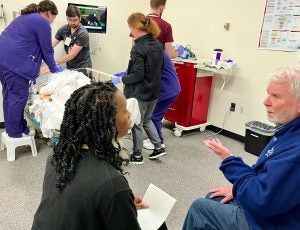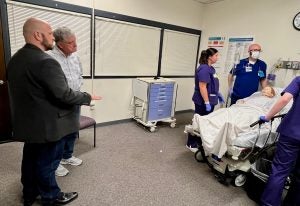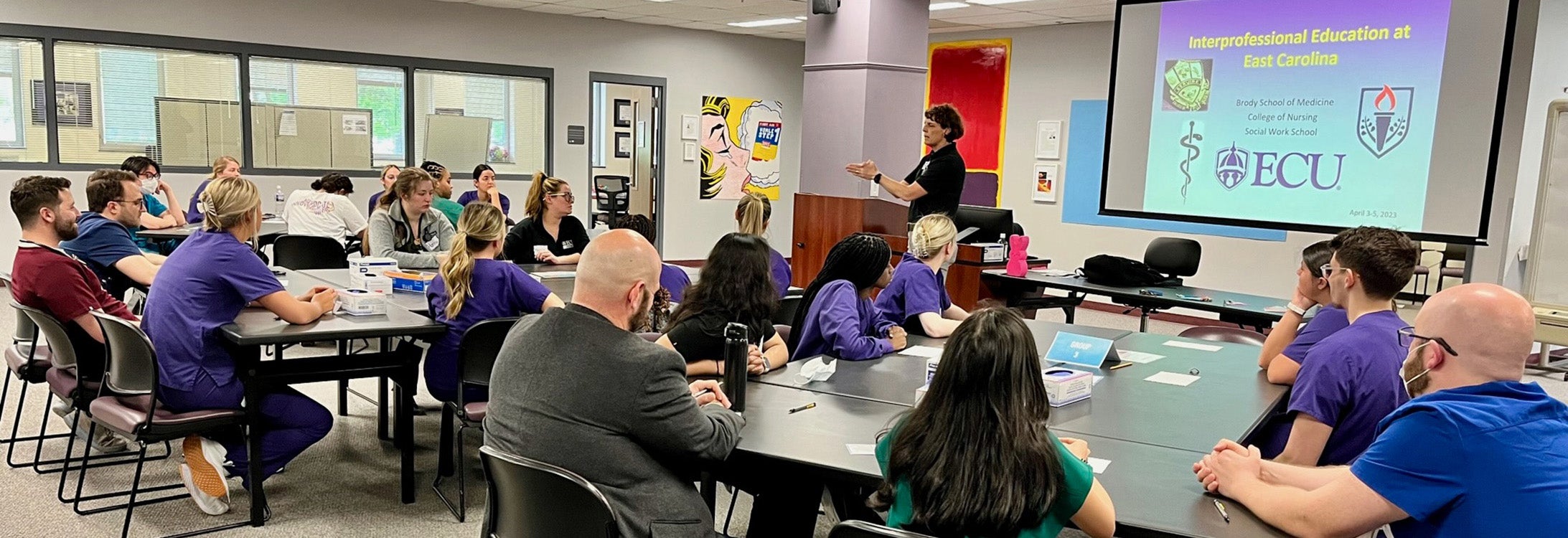Side-by-side with Social Work interprofessional course
A new course was introduced within the Master of Social Work program — Interprofessional Education for Clinical Decision Making — for the spring semester, and this led to many different unique experiences for participating students.

Social Work student Nonde Carter, left, talks with a man acting as a patient’s family member during a crisis scenario simulation.
An aim for the course, taught by Drs. Kelley Reinsmith-Jones and Kirk Foster, was for MSW students to embrace events to co-learn with students studying medicine, dentistry, nursing and other healthcare professions.
Opportunities included working a case with dental students, shadowing at a telepsychiatry clinic and being part of a medical bus tour of Greenville.
April 3-5 is when students from the School of Social Work, Brody School of Medicine and College of Nursing converged at the Brody Clinical Simulation Center on East Carolina University’s Health Sciences Campus. They worked through crisis scenarios, as a team, while interacting with actors and high-fidelity manikins.
Seeing them learn side-by-side resonated with Reinsmith-Jones.
“The Interprofessional Education for Clinical Decision Making course was created as a unique learning opportunity for bringing together students from social work and other healthcare professions,” said Reinsmith-Jones, associate professor and director of the Master of Social Work program. “Traditionally, students from social work, dentistry, nursing and medicine do not learn side-by-side, thus missing out learning on key team communication and team care skills. This interprofessional learning experience has provided students with a newfound appreciation for what each contributes to patient healing.”
“While many social work programs engage in interprofessional education, few provide opportunities to practice in these kinds of labs.” – Dr. Kirk Foster
Scenarios required quick, purposeful decision-making and relying on each other. Debriefing sessions were held after each simulation, giving students, staff and faculty opportunities to reflect and discuss feedback together.
Foster, director of the School of Social Work, added that this class focuses on developing key leadership skills, including effective communication, conflict resolution, role clarity and empathy. He also has seen the value of lab work experience.
“In labs, students interact with standardized patients (actors) and high-fidelity manikins to implement and practice skills as individuals and in working as a team,” Foster said. “This unique learning environment allows students to practice in a low-stakes environment and receive immediate feedback on how to enhance their practice. While many social work programs engage in interprofessional education, few provide opportunities to practice in these kinds of labs.”

Social Work student Joshua Wade, left, participates in an interprofessional crisis scenario simulation.
